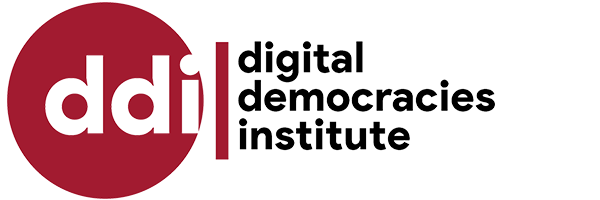
- This event has passed.
SSRC Workshop – Beyond Disinformation: Authenticity and Trust in the Online World
Invite only.
The viral spread of false, misleading, and inaccurate information threatens democracy globally. Originally lauded as inherently democratic, social media platforms such as Twitter and Facebook are now condemned as negligent outlets answerable for “post-truth” politics. An often unspoken assumption is that providing correct information will solve broader problems. Tellingly, however, the 2016 US presidential election was described both as “the authenticity election” and as normalizing “fake news”: the more certain politicians lie, the more authentic they appear. Central to the study of mis- and disinformation are thus questions of how and under what circumstances—social, cultural, historical, and technical—information is deemed “truthful,” “factual,” or “authentic,” when the concepts are related but not interchangeable. What is the role of authenticity in understanding why mis- and disinformation become accepted or meaningful for people? How does authenticity relate to other key concepts, such as truth, fact, and accuracy? What other key words or concepts are necessary, and yet perhaps undertheorized, in the study of information disorder and democracy?
This workshop invites responses that interrogate the centrality of authenticity to the viral spread of mis- and disinformation, as well as the relationship of authenticity to other key concepts such as “truth,” “fact,” “trust,” and/or “veracity.” We encourage responses that take on one or more of these key words or phrases (or others) and investigate their role in propagating or countering mis- and disinformation.
This research development workshop is convened by the Social Science Research Council’s Media & Democracy program and the Digital Democracies Group (DDG) at Simon Fraser University, established through Dr. Wendy Hui Kyong Chun’s Canada 150 Research Chair in New Media. The goal of the workshop is to catalyze and develop rigorous research and public-facing scholarship. The workshop will provide participants an opportunity to give and receive in-depth feedback from their peers on in-progress research projects and to connect with others who work on similar topics.
We particularly encourage applications from emerging and underrepresented scholars; early-career scholars are encouraged to apply. We welcome applications from all relevant social science and humanities fields, including political science, history, anthropology, sociology, STS and media studies, communication, and journalism, as well as computer science, data science, informatics, and related fields. Applications with an emphasis on interdisciplinary work—that seek to answer questions that can’t be solved from the perspective of one discipline alone—are especially welcome.
Applications are due on September 9, 2020.
Participants will be expected to participate in a two-day virtual workshop (for approximately four hours or less each day) tentatively scheduled for October 22–23, 2020. Each participant will prepare an essay of approximately 1000 words related to the workshop themes, which will be circulated to peers in advance of the meeting. During the meeting, participants will offer substantive feedback to their peers with the goal of developing a longer essay or project for public circulation.
Workshop Themes
We welcome proposals for research that will foster interdisciplinary dialogue on the role of authenticity, trust, and authentication in the spread and control of false information online. Research proposals should consider:
- How you might define authenticity
- How you propose to study authenticity
- Why and how authenticity matters to understanding mis- and disinformation
- The relationship of authenticity to other key concepts such as “truth,” “fact,” “trust,” and/or “veracity” (or others you might suggest)
This research workshop is intended to generate a robust discussion among participants, foster possible collaborative research projects, and inform scholarly discussions about authenticity, trust, and verification as possible counters to mis- and disinformation. With an intentionally cross-disciplinary approach, we imagine that a data scientist and cultural theorist might debate the meaning of “authentication” from technical and social perspectives. A historian might examine shifting definitions of truthful political rhetoric over time in conversation with journalists and political scientists. A psychologist and an anthropologist might compare and contrast their disciplines’ understandings of trust.
What questions about authenticity might your study not address? What are the limitations of your approach? Applicants are encouraged to discuss the limits of their disciplinary approach in understanding authenticity—what questions of authenticity can your discipline not answer alone? How might quantitative and qualitative methods be jointly deployed to enhance our understanding of who the concept of authenticity is used in support of and who it is weaponized against? How is it deployed to counter misinformation? How does authenticity work in tandem with or counter to trust, fact, authority, and authorship?
